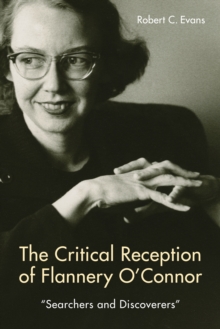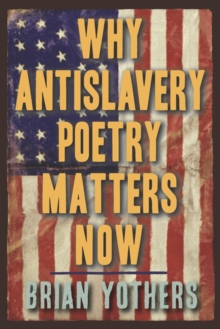
Why Antislavery Poetry Matters Now EPUB
by Brian Yothers
Part of the Studies in American Literature and Culture series
EPUB
Description
This book is a history of the nineteenth-century poetry of slavery and freedom framed as an argument about the nature of poetry itself: why we write it, why we read it, how it interacts with history.
The poetry of the transatlantic abolitionist movement represented a powerful alliance across racial and religious boundaries; today it challenges the demarcation in literary studies between cultural and aesthetic approaches. Now is a particularly apt moment for its study. This book is a history of the nineteenth-century poetry of slavery and freedom framed as an argument about the nature of poetry itself: why we write it, why we read it, how it interacts with history. Poetry that speaks to a broad cross-section of society with moral authority, intellectual ambition, and artistic complexity mattered in the fraught years of the mid nineteenth century; Brian Yothers argues that it can and must matter today.
Yothers examines antislavery poetry in light of recent work by historians, scholars in literary, cultural, and rhetorical studies, African-Americanists, scholars of race and gender studies, and theorists of poetics. That interdisciplinary sweep is mirrored by the range of writers he considers: from the canonical - Whitman, Barrett Browning, Beecher Stowe, DuBois, Melville - to those whose influence has faded - Longfellow, Lydia Huntley Sigourney, John Pierpont, John Greenleaf Whittier, James Russell Lowell - to African American writers whose work has been recovered in recent decades - James M. Whitfield, William Wells Brown, George Moses Horton, Frances E. W. Harper.
Information
-
Download - Immediately Available
- Format:EPUB
- Pages:308 pages
- Publisher:Boydell & Brewer Ltd
- Publication Date:20/06/2023
- Category:
- ISBN:9781800103375
Other Formats
- PDF from £22.49
Information
-
Download - Immediately Available
- Format:EPUB
- Pages:308 pages
- Publisher:Boydell & Brewer Ltd
- Publication Date:20/06/2023
- Category:
- ISBN:9781800103375










